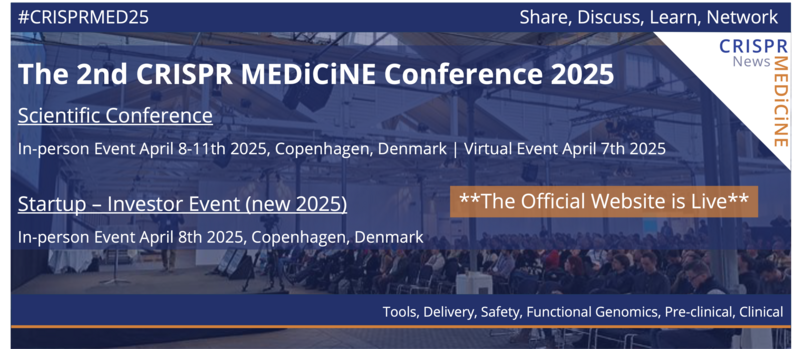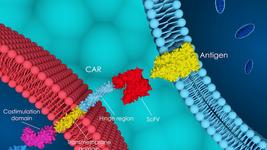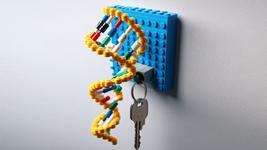CRISPR IND Update: NTLA-5001 For Acute Myeloid Leukaemia
Last week, Intellia Therapeutics announced that it had received IND clearance from the FDA for NTLA-5001, which is an autologous T cell receptor (TCR)-T cell candidate therapy for acute myeloid leukaema (AML).
NTLA-5001 is Intellia’s first ex vivo CRISPR therapy candidate for cancer to approach the clinic, and patient screening for Phase 1/2a trial enrolment is expected to start by the end of this year.
Targeting the Wilm’s Tumour antigen
The Wilm’s Tumour (WT1) antigen is a protein that is over-expressed in AML and many other tumour types, and it has become an attractive target for immunotherapy-based approaches to cancer treatment. AML is the most common type of acute leukaemia in adults, and it rapidly progresses to a fatal stage without treatment.
NTLA-5001 is developed using patient-derived T cells, in which the patient’s own TCR is replaced with a natural (i.e. from a healthy donor) high-avidity TCR with specificity for WT1. Complete removal of the endogenous TCR is ensured by CRISPR-Cas9-mediated replacement of the TRAC locus with the WT1 TCR, and subsequent site-specific knockout of the TRBC locus, which encodes the T cell receptor beta chains. The CRISPR-Cas9 reagents are delivered to the T cells via an adeno-associated viral (AAV) vector.
Potent tumor killing expected in all genetic subtypes of AML
The anti-WT1 TCR used in NTLA-5001 was identified through screening of healthy individuals as a TCR with high affinity for WT1. It specifically recognises a specific WT1 epitope that is presented broadly by AML blasts with the HLA-A*02:01 allele. AML blasts are immature white blood cells that don’t offer immune protection, and WT1 is overexpressed in more than 90 % of all blasts. The TCR-engineered T cells can activate both helper T cells and cytotoxic T cells resulting in killing of WT1-expressing tumour cells.
Low WT1 expression in healthy tissues minimises toxicity, and Intellia expects that this approach has the potential to treat all mutational subtypes of AML. The TCR T-cell product is further subjected to undisclosed CRISPR-Cas9 genome edits to improve cell health, safety and function, and engineered cells are finally expanded to dosable numbers. Pre-clinical data unveiled at the 62nd American Society of Hematology (ASH) Annual Meeting last year revealed robust anti-tumour responses for NTLA-5001 against patient-derived AML blasts that were transplanted into mice.
The NTLA-5001 trial
NTLA-5001 will be assessed in a Phase 1/2a, single dose multi-center study that will evaluate safety, tolerability, cellular kinetics (CK), activity, and pharmacodynamics (PD) in participants with AML. The trial is anticipated to enrol 54 adults in various sites in the US and UK who have detectable disease following first-line therapy, who carry the human leukocyte antigen-A0201 (HLA-A*02:01) allele, and who satisfy other trial-specific criteria. Prior to treatment with NTLA-5001, participants will receive intravenous lymphodepleting chemotherapy consisting of cyclophosphamide and fludarabine. This will decreases the number of patient own T cells in order to make space for the NTLA-5001-T cells.
Intellia has also submitted a regulatory application to the U.K. for NTLA-5001.
This article was updated on 12th October 2021 to include information on the NTLA-5001 clinical trial.
For a complete overview of CRISPR IND approvals and ongoing gene-editing clinical trials, check out CRISPR Medicine News' Clinical Trials Database.
Tags
ArticleNewsin vivoAdeno-associated virus (AAV)Acute Myeloid Leukemia, AMLCancerCancerCRISPR-CasCas9FDAIntellia Therapeutics, Inc.TrialsIND - Investigational New Drug
CLINICAL TRIALS
Sponsors:
Wave Life Sciences Ltd.







